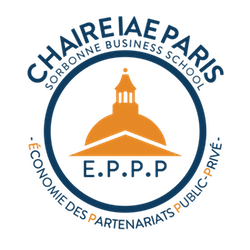11 janvier 2016 Ricard GIL: « Relational Adaptation under Reel Authority »
Ricard GIL (John Hopkins University)
« Relational Adaptation under Reel Authority »
Speaker : Ricard GIL (Johns Hopkins University)
Paper : Relational Adaptation under Reel Authority
Where : Sorbonne Business School — 8 bis rue de la Croix Jarry, 75013.
Ricard Gil, PhD (Economics, University of Chicago), is associate professor at the Johns Hopkins Carey Business School since 2011. His research topics focus on organizational economics, strategy and industrial organization. His publications as well as more details about his CV and research activity are available at: https://sites.google.com/site/ricardgilpage/
Authors : Daniel BARRON (Northwestern University), Robert GIBBONS (Massachusetts Institute of Technology), Ricard GIL (Johns Hopkins University) and Kevin J. MURPHY (University of Southern California)
Abstract : We study ongoing relationships in which parties must repeatedly tailor decisions to the state of the world, but typically have different preferred decisions. Our theoretical analysis shows how relational adaptation (i.e., self- enforcing agreements that facilitate efficient adaptation), combined with formal contracting, induces state-dependent decision-making that improves upon the expected payoffs under either formal contracting or relational contracting alone.Our empirical analysis focuses on formal revenue-sharing contracts between movie distributors and exhibitors that allow the exhibitor wide leeway about whether to show the movie and in what time slots. These formal contracts are often informally renegotiated after the movie has finished its run—i.e., long after any adaptation decisions have been taken by the exhibitor. Our empirical setting is attractive because we observe: (i) the formal revenue-sharing contract terms; (ii) informal renegotiations of the formal contract terms that occur after all decisions have been made; and (iii) proxies for both the state of the world (potential revenues from alternative movies competing for the same time slots) and the adaptation decisions (what movies were actually shown, and in what time slots). Our theoretical and empirical results suggest that formal contracts can be the foundation for informal relationships that achieve efficient adaptation in fluctuating environments.
Keywords: adaptation, renegotiation, relational contracts, revenue sharing, movie contracts.
Download the paper
